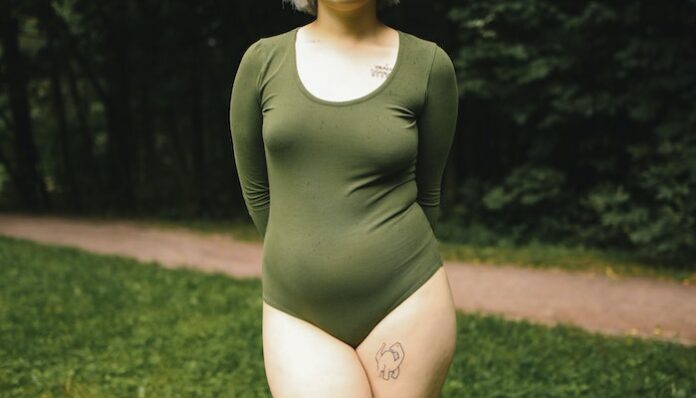
As is the case with every January, as soon as the first week of the New Year rolled around, I had already been hit up by dozens of emails from PR reps pushing their “lose weight and get the perfect body” agenda. The new year is about fitting into society’s view of beauty, not body positivity.
And, as is the case with every January, I muted these reps and sent them directly to spam. I don’t need someone telling me I need to start the new year by losing weight, nor will I ever cover a topic for any site about how one can lose weight. As far as I’m concerned, every body is a bikini body, and no one can convince me otherwise.
But on the flip side of that, as these emails come in throughout the month, social media bombards me with posts from friends and colleagues on Instagram who are ignoring the January narrative of losing weight and loving your body as it is.
Post after post of “your body is beautiful no matter what your size” take over my Instagram feed and, honestly, I find it just as grating as the PR reps pushing their “new year, new you” crap.
Here’s the thing: I’m so sick of people telling me I have to love my body, that I shouldn’t strive for the physique of Emily Ratajkowski, and if I have stretch marks and cellulite, I should embrace them.
Why? Why is this something I have to do? If I don’t, if I get up every morning loathing my body, how does it affect you or you or you? I strongly feel that I can like and dislike things on my terms, and if I happen not to love my body, I don’t think that makes me any less of a feminist or any less of an advocate for the body-positive movement.
I agree entirely with the body positivity movement’s general premise that loving your body in a society that regularly shoves its warped ideas of perfection down our throats is a feminist act. To love your body, every inch of it, no matter its appearance, is beautiful. It’s mentally and emotionally healthy to do so; it challenges society’s archaic standards, and, believe me, I’m 100 percent here for it.
When the pandemic hit, and all my travel plans for 2020 abruptly stopped, I gained a bit of weight. It’s hard not to gain weight when sitting around with no place to go and mourning the loss of the life you knew before.
Before coming to my senses and realizing that a trip to Tulum this past December would be the very definition of ignorance, arrogance, and white privilege so I canceled, I decided I needed to lose that pandemic weight if I were going to be on the beaches of Mexico.
I told a friend I needed to cut the carbs and get in shape. Her response, as any good, loving friend would say: “No diets! You don’t need to lose weight to be beautiful!” I agree. But if I’m uncomfortable in my skin, don’t I have the right to make changes so I can feel comfy in this body of mine? Last I checked, I do.
Like many people, I have a love-hate relationship with my body. I know I will never walk down the street looking like a Photoshopped model from the pages of Vogue. This isn’t something I’ve had to accept, it’s just my reality.
I’ve never had a moment where I had to make peace with my body because it is what it is. My body weight has fluctuated throughout my life, and I’m sure it will continue to do so. My relationship with my body is complicated, and I don’t need, nor do I want, people telling me how that relationship has to be.
In a perfect world, we’d all love our bodies. When we think of how amazing human bodies are, the intricacy of all of it working together to get you from place to place, let alone what it’s capable of beyond that, is phenomenal.
I respect my body deeply, but I shouldn’t have the body positivity police breathing down my neck telling me I have to respect it. We’re given one body; what we choose to do with it in our lifetime is our business. No one should be dictating how we should feel about our bodies and we owe no one an explanation about those feelings.
To love your body and to love yourself is a beautiful thing. But for some people, it’s not that simple because life itself isn’t simple. No one should be shamed for the complexities that come with being human, especially when it comes to their own skin.
Originally written by Amanda Chatel on YourTango
Feature Image by Polina Tankilevitch on Pexels



















Testosterone can play a significant role in promoting a positive body image and overcoming body positivity challenges for men. Here are a few reasons why testosterone can have a positive impact:
Muscle Development: Testosterone is a key hormone involved in muscle growth and development. When testosterone levels are within a healthy range, it can enhance muscle mass and strength. This physical transformation can boost self-confidence and improve body satisfaction, allowing men to feel more comfortable and positive about their bodies. You can find
Fat Distribution: Testosterone influences fat distribution in the body. It tends to promote a leaner body composition by reducing fat accumulation, particularly in the abdominal area. This can lead to a more toned and defined physique, which can contribute to a positive body image and self-esteem.